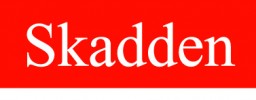On June 9, 2022, Sens. Patrick Leahy (D-Vt.) and Thom Tillis (R-N.C.) sent a letter to the directors of the U.S. Patent and Trademark Office (PTO) and the U.S. Copyright Office requesting a study of intellectual property (IP) issues related to non-fungible tokens (NFTs). Citing their roles as leaders of the Judiciary Subcommittee on Intellectual Property and the growing use of NFTs across different fields, Sens. Leahy and Tillis invited the directors to undertake a joint study on the current and future landscape of IP rights associated with NFTs. The senators also provided a non-exclusive list of questions for the directors to consider, including:
- The IP challenges that currently, and may in the future, affect NFT uses;
- How transferring and licensing NFTs affects IP rights associated with the underlying asset;
- The mechanics of NFT IP infringement and protection;
- Whether statutory protections such as the Digital Millennium Copyright Act (DMCA) apply to NFT marketplaces and, if so, whether they are adequate to address infringement concerns;
- IP protection available for an NFT creator; and
- How the PTO and Copyright Office could use NFTs to secure and manage NFT rights.
Sens. Leahy and Tillis encouraged the directors to confer with different private sector interest groups while conducting the study. The senators also requested that the directors confirm by July 9, 2022, whether they would conduct the study, and if they do plan to do so, that they complete it by June 9, 2023.
Key Takeaways
The non-exhaustive list of topics presented by Sens. Leahy and Tillis is a mix of basic NFT questions and those on which NFT IP practitioners would welcome the views of the PTO and Copyright Office. For example, a question that is often discussed is how the DMCA applies to NFTs, especially in decentralized storage systems. Trademark practitioners would also welcome insights of the PTO on the registration of trademarks for NFT and metaverse projects.
In general, the letter from Sens. Leahy and Tillis highlights the importance of addressing the IP issues associated with NFTs. The recent uptick in companies filing trademark applications for activities related to NFTs and the metaverse also suggests that the need for clarity on NFT IP issues will likely increase, particularly as interested parties continue to engage with these emerging technologies. However, given that the joint study is not due until June 2023, it will be some time before those working in the NFT space will have further clarity.
Law clerk Gabriel U. Mohr assisted in the preparation of this article.

For further information, please contact:
Stuart D. Levi, Partner, Skadden
stuart.levi@skadden.com




